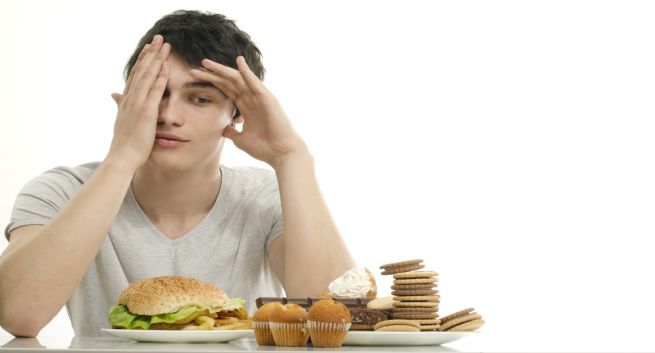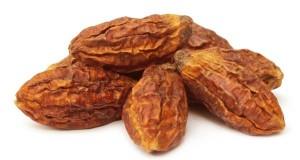5 so-called ‘good’ habits that actually make you fat

When it comes to weight loss, there is no easy way out. Unfortunately, we all are pining for one, and that is one reason we all fall prey to the myths and misconceptions that make us fat instead. Often we fail to understand that following health advices blindly doesn’t help with weight loss, rather it can backfire. Here are 10 surprising things that are making you fat without your knowledge.
Avoid these so-called healthy habits to make sure you are on-track with your weight loss goals:
1. Buying low-fat products: So you think, anything that claims to be low-fat helps you become leaner and consume fewer calories? While that might seem like an intelligent move, know that if you are not taking into account the amount of sodium, artificial preservative, flour and other unhealthy things, you might just end up eating more calories than you need. In fact, studies done to understand whether low-fat diets would help obese people reduce weight found that the outcomes weren’t satisfactory. A study done and published in Obesity Reviews showed that people who followed low-fat diets for over a period of 12 to 18 months just lost a marginal two to four kilos [1]. So fat is not your real enemy, deprivation is. A balanced diet will benefit you much more. Did you know low-fat diet can make you dumb?
2. Using artificial sweeteners: Another adjustment most people do to their diet is eliminating white sugar and substituting it with artificial sweeteners. Not a great move. In fact, artificial sweeteners are more calorie dense and can trick your brain to crave for more food that is rich in calories and energy, in a way making you eat food that can promote weight gain [2]. Here is a lowdown on artificial sweeteners and weight gain.
3. Not getting enough sleep: Sure you want to stick to your fitness regimen and go for a walk, jog, gym early in the morning, and so you wake up at the crack of dawn. While that is a good habit, but sleeping late and waking up early is going to sabotage your weight loss goals. This is because lack of sleep makes you consume more calories through food. It increases levels of ghrelin and reduces levels of leptin, the hunger and satiety hormone respectively [3]. So eight to 10 hours of shut-eye is your sure shot way to weight loss. Here are more dangers of less sleep you should know about.
4. Consuming too many health drinks: If someone told you having diet coke is good for health, stopn taking health advice from that person. Artificial sweeteners added to the so-called health drinks do more damage than good [2].
5. Eating out twice-a-week: It is okay to have cheat meals even when you are on a diet. But what you eat can make a huge difference to your weight loss goals. In fact, a study published in the International Journal of Obesity showed that people who had meals at least twice a week had higher BMI and greater risk of being overweight [4]. Stick to home cooked food if you really want to lose that stubborn weight.
Reference:
[1] 1: Pirozzo S, Summerbell C, Cameron C, Glasziou P. Should we recommend low-fat diets for obesity? Obes Rev. 2003 May;4(2):83-90. Review. Erratum in: Obes Rev. 2003 Aug;4(3):185. PubMed PMID: 12760443.
[2]Davidson TL, Martin AA, Clark K, Swithers SE. Intake of high-intensity sweeteners alters the ability of sweet taste to signal caloric consequences: implications for the learned control of energy and body weight regulation. Q J Exp Psychol (Hove). 2011 Jul;64(7):1430-41. doi: 10.1080/17470218.2011.552729. PubMed PMID: 21424985; PubMed Central PMCID: PMC3412685.
[3]Beccuti, G., & Pannain, S. (2011). Sleep and obesity. Current opinion in clinical nutrition and metabolic care, 14(4), 402.
[4] Naska, A., Orfanos, P., Trichopoulou, A., May, A. M., Overvad, K., Jakobsen, M. U., … & Boutron-Ruault, M. C. (2011). Eating out, weight and weight gain. A cross-sectional and prospective analysis in the context of the EPIC-PANACEA study. International journal of obesity, 35(3), 416-426.
-
7 real reasons why you are feeling hungry
-
How BMI and BMR play a role in weight loss
-
Is it possible to lose weight without exercising?
-
Fitness Plan Day 54: Perform exercises that help you lose weight and get toned
-
Fitness Plan Day 62: Have sex in the morning to feel active all day long!
-
Why weight loss isn’t just about counting calories
- DON'T MISS
- 5 herbal teas that can help you slim down!
- Believe it or not — coconut oil can ACTUALLY help you lose weight and burn fat!
- Plus-Size Products and Services
- 10 FAT RICH foods that help you lose weight and stay healthy!
- Calcium Rich Recipes: Bajra aur kaddu ki roti
- 5 so-called ‘good’ habits that actually make you fat
- Is the GM Diet a safe way to lose weight?
- Fitho: Fighting obesity and helping people lose weight online!
- Launch a Successful Food Program for Weight Loss
- Weight loss drink–Mint and coriander smoothie




